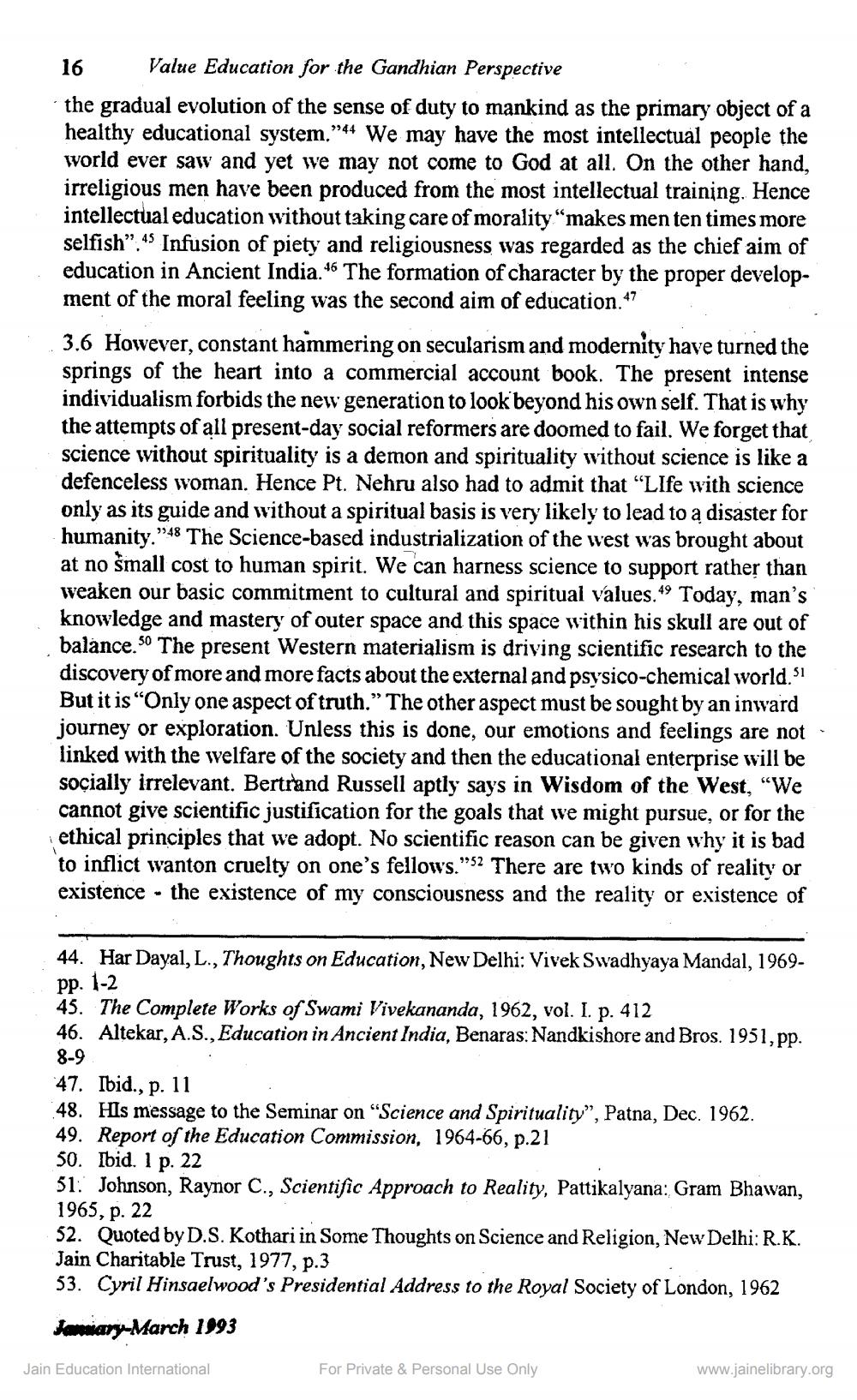________________
16
Value Education for the Gandhian Perspective
the gradual evolution of the sense of duty to mankind as the primary object of a healthy educational system.”44 We may have the most intellectual people the world ever saw and yet we may not come to God at all. On the other hand, irreligious men have been produced from the most intellectual training. Hence intellectual education without taking care of morality“makes men ten times more selfish”. 4S Infusion of piety and religiousness was regarded as the chief aim of education in Ancient India.^6 The formation of character by the proper development of the moral feeling was the second aim of education.47 3.6 However, constant hammering on secularism and modernity have turned the springs of the heart into a commercial account book. The present intense individualism forbids the new generation to look beyond his own self. That is why the attempts of all present-day social reformers are doomed to fail. We forget that science without spirituality is a demon and spirituality without science is like a defenceless woman. Hence Pt. Nehru also had to admit that “Life with science only as its guide and without a spiritual basis is very likely to lead to a disaster for humanity.”48 The Science-based industrialization of the west was brought about at no small cost to human spirit. We can harness science to support rather than weaken our basic commitment to cultural and spiritual values.49 Today, man's knowledge and mastery of outer space and this space within his skull are out of balance.50 The present Western materialism is driving scientific research to the discovery of more and more facts about the external and psysico-chemical world." But it is “Only one aspect of truth.” The other aspect must be sought by an inward journey or exploration. Unless this is done, our emotions and feelings are not linked with the welfare of the society and then the educational enterprise will be socially irrelevant. Bertrand Russell aptly says in Wisdom of the West, “We cannot give scientific justification for the goals that we might pursue, or for the ethical principles that we adopt. No scientific reason can be given why it is bad to inflict wanton cruelty on one's fellows."52 There are two kinds of reality or existence - the existence of my consciousness and the reality or existence of
44. Har Dayal, L., Thoughts on Education, New Delhi: Vivek Swadhyaya Mandal, 1969pp. 1-2 45. The Complete Works of Swami Vivekananda, 1962, vol. I. p. 412 46. Altekar, A.S., Education in Ancient India, Benaras: Nandkishore and Bros. 1951, pp 8-9 47. Ibid., p. 11 48. His message to the Seminar on "Science and Spirituality”, Patna, Dec. 1962. 49. Report of the Education Commission, 1964-66, p.21 50. Ibid. 1 p. 22 51: Johnson, Raynor C., Scientific Approach to Reality, Pattikalyana: Gram Bhawan, 1965, p. 22 52. Quoted by D.S. Kothari in Some Thoughts on Science and Religion, New Delhi: R.K. Jain Charitable Trust, 1977, p.3 53. Cyril Hinsaelwood's Presidential Address to the Royal Society of London, 1962 Jamiary March 1993
Jain Education International
For Private & Personal Use Only
www.jainelibrary.org




